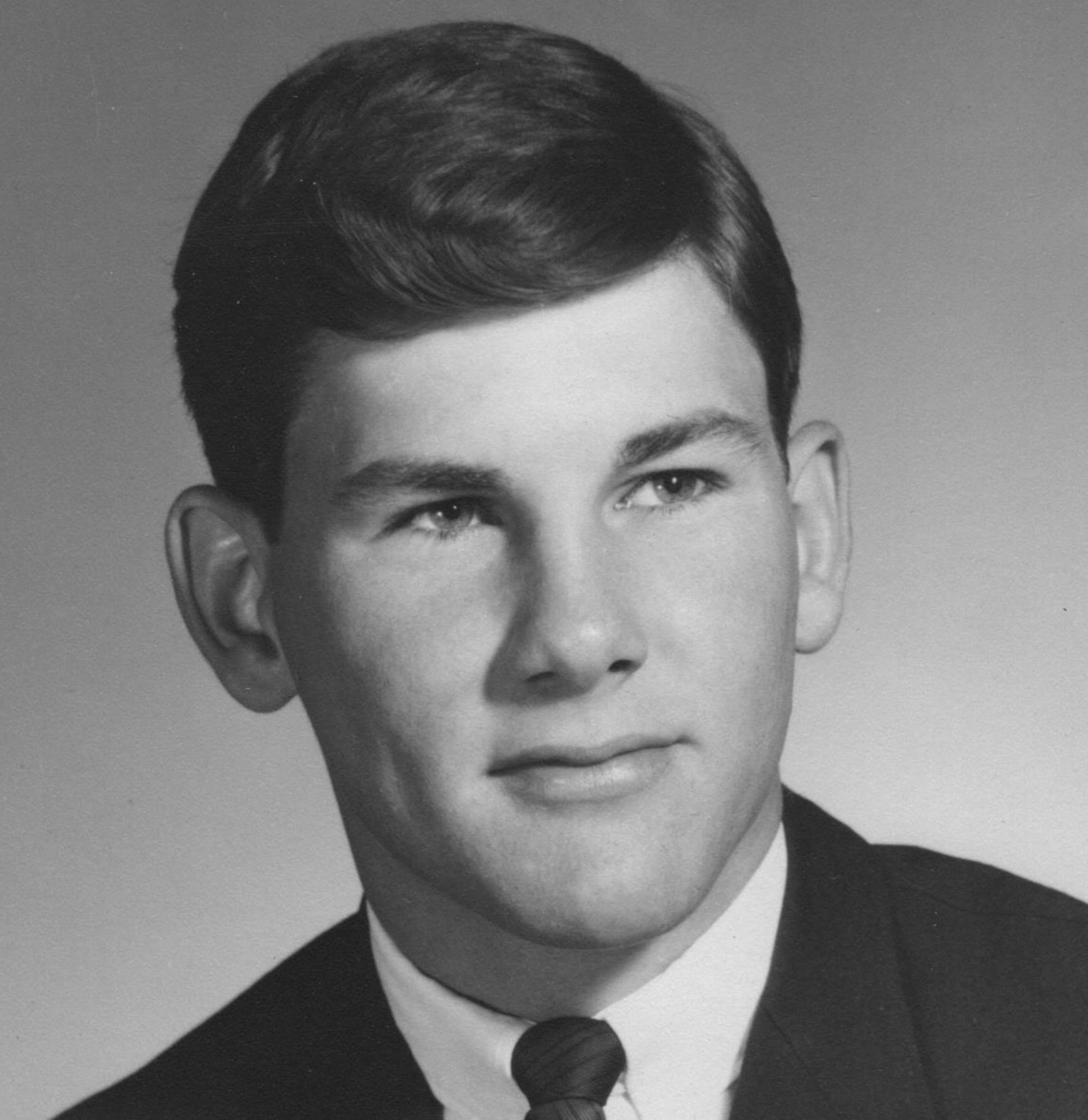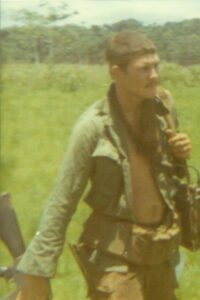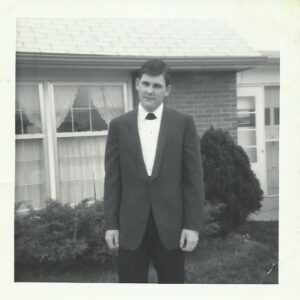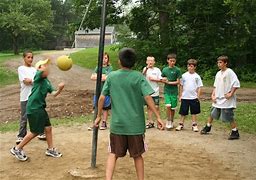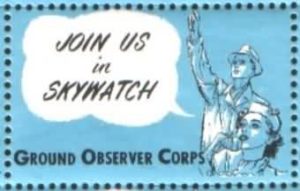It was the Spring of 1963, the year that I became old enough to attend Church Camp. In Indiana, as an Evangelical United Brethren or EUB, to qualify, you had to have logged 14 years on earth. Our church regularly sent 20 – 30 kids for a week every summer in an effort to broaden their horizons and hopefully to experience a spiritual awakening. I was unsure what the implication of all that meant but I did know that girls were going to be there, and I was in.
In my house, with three kids in residence and one on the way, expense was the first item on the agenda. It was decided that I would assume responsibility for one-third of the cost. The church would cover one-third and my parents would cover the remaining balance. This decision was based on my father’s natural Scottish heritage. He reasoned that if one or both of the other thirds defaulted on their liability, he was off the hook. You see living in a Scottish family is first and foremost intrinsically intertwined with the answer to “how much does it cost.” Although, I never fully grasped the concept of how much was too much, my father was the sole decision maker when it came to that answer. So, after establishing how much I needed to fund my trip of a lifetime, I doubled down on my need to save money.
I already was employed by the Muncie Newspapers as a route carrier. More commonly known in the sixties as a “delivery boy”. In fact, I carried both the Muncie Morning Star and the Muncie Evening Press. My routes were roughly the same territory bounded by Bethel Avenue on the North to Neely Avenue on the south. In those days Sunday was the largest circulation and I routinely delivered to around 300 homes. All in, I delivered around 350 newspapers a day during the week. After all of this commitment, I collected 35 cents a week for my labor. Of that I cleared about a nickel a day per customer. Now you don’t need to be Warren Buffet to figure out that I was going to start mowing yards if I was going to hold up my end of the bargain. The cool thing about being young is that you don’t know that you can’t do something. Besides that, there were going to be girls there.
Mom was the designated as the keeper of the funds and off I blundered into the world of desire vs affordability. Being raised in the depression Mom had never been able to afford Church Camp, and it had always been a regret, so she became my biggest cheerleader. Every week as I handed over my contributions, she let me know how close to my goal I was getting. My father, on the other hand, would regularly, at breakfast, downgrade my expectations by letting me know that he might need to use the family money for my brother’s dental work. I didn’t know if he was joking but I could care less about LB1’s overbite. Even with the repair work, he was still going to be lifelong ugly.
Due date for the funds arrived and my contributions were there, just barely, with a little help from Mom’s grocery money, I think. Dad wrote the check to the church and my date with destiny was secure. It was now time to get advice from the older boys at the Sunday night youth group meeting as to what to expect. Their experiences were as wide and varied as their individual personalities. One thing was clear, every single one was going again this year, and they were excited about the prospects. The primary reason mentioned by most as to motivation to return, “girls will be there.” Now at 14, I was not inexperienced in the world of coeducational cohabitation. I had done my fair share of handholding and had even been kissed on a front porch once. This, however, was going to be different, no parents lurking around.
As the warm summer days were being checked off my calendar daily, I realized, rather abruptly, that I was going to need new clothes. Last year’s school outfits were out of date and besides they didn’t fit well any longer. You have to love my mom, she announced at breakfast that next day that she was taking me school clothes shopping early. With the last big hurdle checked off my list, I was ready to take the plunge into “teenagerhood” as my buddies called it.
A couple weeks later we met at the Church on Sunday afternoon to get our assignments for the carpools that were to take us to Camp INDICOSO church camp. As we loaded into the waiting car caravan and pulled out of the parking lot, I thought I saw a tear in my mom’s eye. I guess I hadn’t realized until that minute, that I was accomplishing something that she had always wanted to do. As emotional as that moment might have been, I didn’t hang on to the thought long because I was sitting right next to Judy, a cheerleader, and would be her companion, for the next two hours. This was going to be one great week.
Upon arrival the groups were billeted in cabins on opposite sides of the camp based on gender. Assignments were given out in each cabin as to responsibility for the upkeep of the area inside and out. Very soon after that, the dinner bell rang, and we followed in the direction of the smell of baked beans and chocolate cake. Upon arrival to the Mess Hall we were given the opportunity to be seated at our option, but mostly we separated ourselves, boys on one side and girls on the other. After eating, twilight was fast approaching, and we were given maps as to how get to the evening campfire. Soon we found the log benches arranged around the campfire and I noticed a girl that I had seen in the chow hall. She was looking in my direction and she motioned for me to come over and sit next to her. Looking around to make sure she was waving to me, I turned toward her and with all the coolness a 14-year-old could muster I sat down on the log by her. The next 30 minutes were a blur of singing and laughing and the warm tingly feeling of raging hormones. We had an evening prayer service and were dismissed to go back to our respective cabins. I walked her back to the girl’s sleeping quarters and we said goodnight. As I was leaving, she shouted over her shoulder that she would see me at breakfast. As I floated back to the boy’s cabin, I realized that we had not introduced ourselves. Not to worry, we had five more days. I had just barely made it to “lights out ” and climbed into my bunk when the guy above me, who was from my church, hung his head over the top of the bed and whispered, “I heard that the girl you were with was 16”. Rolling over and burying my head in my pillow I said a quick prayer to God, “Dear Lord it’s ok if you want to take me now, because I know it’s never going to get any better than this. ”
The rest of the week was pretty much the way it started out, raging hormones, spiritual experiences, ego enhancing moments, and a lot of hand holding. And then the last night was at hand. I pretty much didn’t hear the sermon; my thoughts were a tangle of emotions and pleasure. Strangely I felt older, at least 15. On the way back to “lights out”, we were able duck behind a large pine tree for a quick kiss and a hug. We made promises to call each other and write letters. The next morning, we said our goodbyes and loaded up into our respective carpools and headed home to different cities. Again, I was paired up with Judy the cheerleader, after just a few minutes on the road, she whispered in my ear, “did you know that girl was 16 years old”? “Really?” I said to no one in particular.
We did call each other on the phone a few times and we exchanged a few letters, but our geographical challenges were evident. My mom was the first to notice that something was different. “Was it worth all the hard work that you put in to get there?” she wanted to know. Yup” was all I said. Little did she know that I had just had the most exciting week of my young life. Several years later when my daughter came to me with an inquiry about going to Church Camp and wanted to know if she should go. My immediate reply was “don’t miss it.” I wanted to tell her about the experience, the feelings, the underpinning of spiritual awareness, the connection of being outdoors to feeling closer to God and the knowing that you were growing older. But all I could get out was ” I’ll pay for it”.
In later years, as I bumped down the road of life, that Church Camp experience floated back to my memory on many occasions and when it did, it never failed to bring a smile to my face and a tug to my heart. It also always reaffirmed that growing up in the sixties was among the some of the greatest times of my life.
